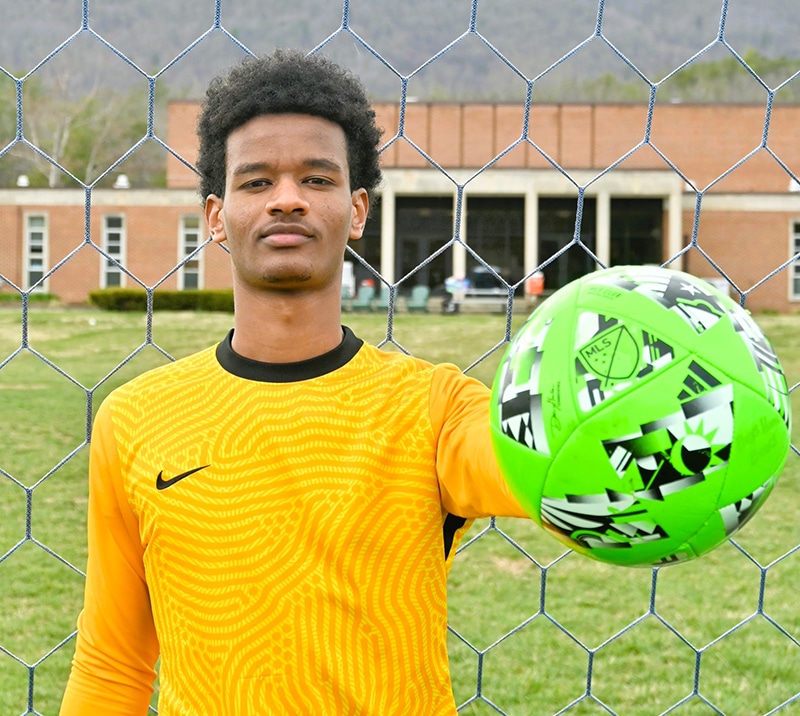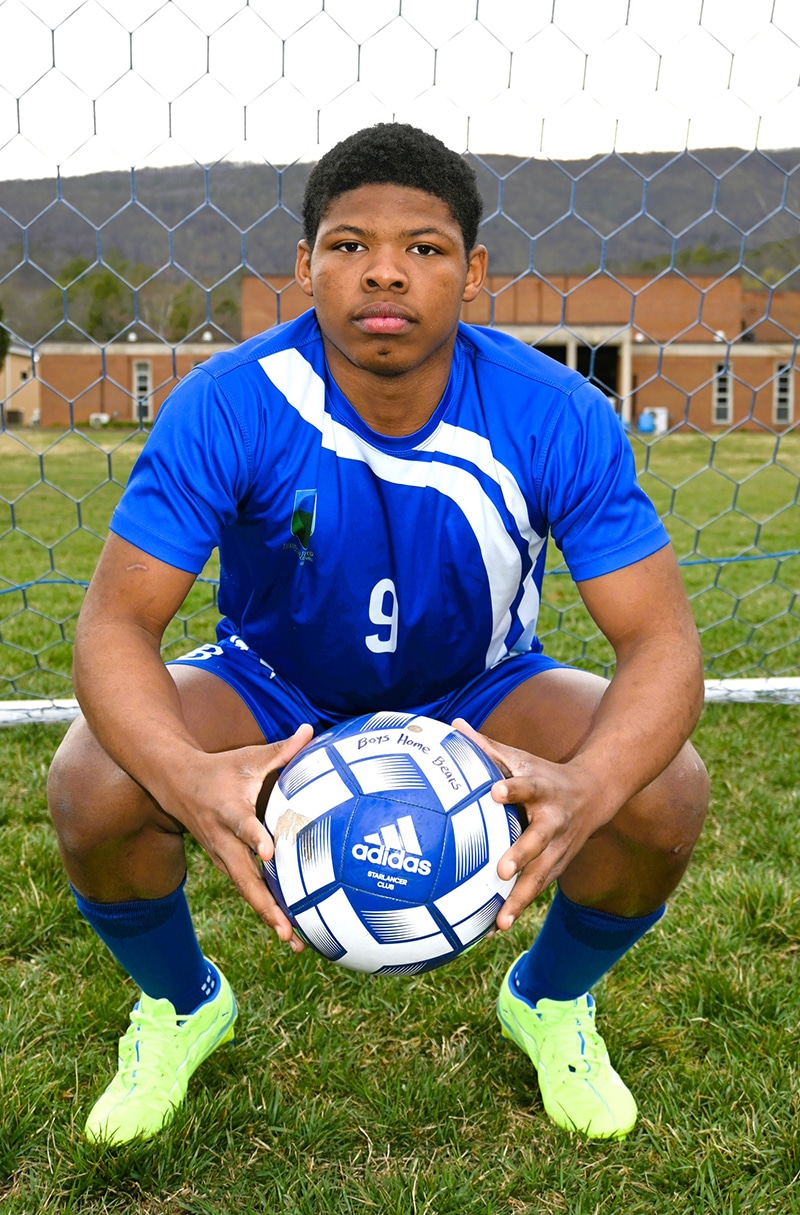The Benefits of Youth Sports at Boys Home of Virginia
How Character Development Flourishes Through Athletics
The young men at Boys Home of Virginia participate in a variety of athletic activities— they hit the soccer field in spring and fall, then move to the basketball court when winter arrives. These games and practices fill our calendar year-round, bringing energy and friendly competition to campus life.
But can running up and down a field or court really shape a young man’s character? After more than a century of working with boys, our answer is a resounding yes.
These athletic activities deliver far more than just exercise or entertainment. They create natural opportunities for personal growth that can’t be replicated in a classroom. Research backs up what we’ve observed — studies show that high school sports participation is directly connected to better mental health in young adulthood and fosters physical activity habits that last for decades beyond graduation.
Physical Development as a Foundation
Physical activity forms the foundation of athletic programs at Boys Home. Regular participation in sports helps students develop:
- Improved cardiovascular fitness
- Enhanced coordination and motor skills
- Greater physical strength and endurance
- Better overall health and wellness
- Healthy sleep patterns and energy levels
Research shows that young people who participate in regular athletic activities are more likely to have better physical health than their peers who do not participate in sports. Not only that, but they also tend to make better, more nutritious food choices that establish healthy habits that can last a lifetime.
Building Social Skills Through Teamwork
Team sports provide a natural environment for developing social capabilities. Research from the Department of Family, Youth and Community Sciences highlights how athletic participation teaches young people to:
- Associate effectively with peers
- Resolve conflicts constructively
- Communicate clearly with teammates and coaches
- Understand their role within a group
- Support others working toward a common goal
Events like the Staff vs. Students games during Minimester demonstrate how athletic events can strengthen community bonds and create positive social interactions. These structured activities are always opportunities to practice social skills in a supportive environment.
Emotional Development Through Athletic Challenges
Sports naturally present emotional challenges and learning opportunities. Research indicates that athletic participation can help young people develop:
- Improved self-esteem
- Enhanced emotional regulation
- Greater resilience in the face of setbacks
- Better stress management techniques
- Increased confidence in their abilities
Team sports create a space where young people can experience success and disappointment in a supportive group setting.
The emotional ups and downs of athletics — nail-biting finishes, unexpected losses, personal triumphs — build emotional skills that matter far beyond sports. Learning to stay composed during pressure situations transfers to many life challenges.
Character Traits Fostered Through Athletics
Sports at Boys Home help build key character traits:
Discipline
Ask any coach: showing up matters. Sports demand consistency – practices, training sessions, game preparations. This day-after-day dedication spills over. The kid who never missed basketball practice often becomes the teen who completes every assignment.
Teamwork
Ever watched five basketball players move as one? Magic happens when people truly work together. Young athletes quickly learn that passing to the open teammate beats forcing a bad shot. This “we before me” mindset serves them everywhere.
Resilience
Friday’s loss hurts. Monday’s practice still happens. Sports force kids to face disappointment without quitting. The player who learns to refocus after a bad play carries that same grit into real-life challenges.
Responsibility
Teams count on each member. Skip practice? The whole squad suffers. Sports create natural lessons about keeping commitments – not because someone demands it, but because others depend on it.
Sportsmanship
Sports teach an old-fashioned idea— how to win and lose with grace. Good programs value respect for opponents and officials above the scoreboard. This foundation of treating others right matters far beyond any game.
"As a former Boys Home student and athlete myself, sports served as a powerful platform for character development. It gave me invaluable life lessons that extended far beyond the boundaries of the playing field or basketball court. Beyond the physical aspects of sports, it taught me discipline, built character, sportsmanship, teamwork, goal setting, adaptability, and sportsmanship. As an athlete for nine years during my time at Boys Home, I emerged as an individual equipped with the skills, values, and mindset to grow in all aspects of my life. I feel that disciplined athletes exhibit respect for their coaches, teammates, opponents, and officials as I did. The discipline learned in sports helped build my character, instill humility in victory and grace in defeat, and setting an example for others to follow. My goal now is to instill those same qualities in the student athletes here at Boys Home of Virginia.”
The Long-Term Impact of Sports Participation
What happens when the uniforms come off and the season ends? Does sports participation really matter years later?
The evidence says yes. That study, from the National Institute of Child Health and Human Development, tracked young people over time. Those who played high school sports showed remarkable differences later in life:
- Better coping with competition in various life contexts
- Lower rates of depression in young adulthood
- Higher overall well-being scores
- Continued participation in physical activities
- Better social adjustment into adulthood
This matters to us at Boys Home. We’re not just looking at who these young men are today— we’re focused on who they’ll become tomorrow. The lessons from athletics stick around long after graduation day.
Sports Within the Broader Boys Home Program
Athletics fits within our broader approach at Boys Home. The soccer field and basketball court stand alongside classrooms, work programs, and chapel services. Each piece matters.
What makes this approach work? The connections between these different areas. The discipline learned during basketball practice reinforces study habits. The teamwork developed on the soccer field transfers to work assignments. Each area strengthens the others.
We believe in structure. Clear expectations. Consistent routines. Supportive guidance. The athletic program reflects these same principles that guide everything we do.
The Athletic Advantage
Sports do something special at Boys Home. They build bodies, yes. But they also shape character in ways that matter deeply.
Young men who participate in our athletic programs have the chance to develop qualities that serve them throughout life – working hard, supporting their teammates, and handling both success and failure with grace.
These qualities matter. They help prepare Boys Home students to become the kind of men their families, employers, and communities need.
Want to learn more about how athletics fits into our approach to character development? Contact us today at Boys Home of Virginia.


